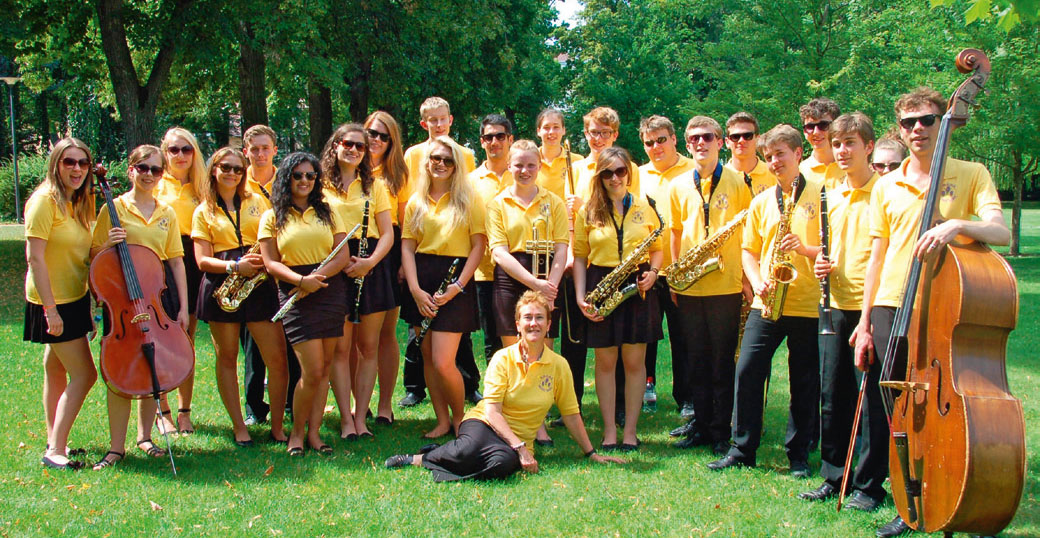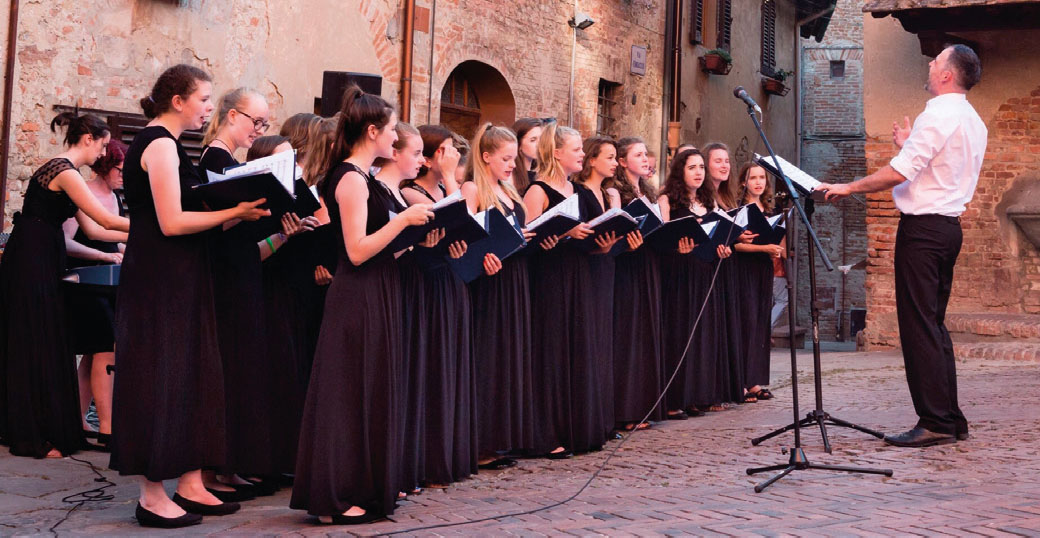
Crystal balls may still be the order of the day for anyone pondering Brexit. Governments, international institutions, tour operators and music teachers alike have all been working with one hand tied behind the back as they attempt to plan into the unknown.
Regardless of Brexit, for music students the highlight of the year still has to be going on tour – maybe your students are already looking forward to a week abroad with classmates and performing in stunning churches in sunny locations. Imagine being taken to the beautiful Italian seaside resort Lignano Sabbiadoro, known as the ‘pearl of the Adriatic’, as students on Halsbury Tours are able to do. Lignano is a hugely popular destination among Italians themselves, and aside from enjoying the golden sands and bright-blue bathing spots, pupils can perform in anything from contemporary and ancient local churches to the magnificent surroundings of St Mark's Basilica in nearby Venice.
Uncertainty
But back in Britain, the atmosphere is currently less harmonious. Brexit negotiations have left us with a feeling of uncertainty, and it is understandable why teachers have reservations about booking tours in the near future. I spoke with several music tour companies to discover how we can set our minds at rest and give students the chance to perform abroad, deal or no deal.
According to Delphine Lock, head of music tours at Halsbury Tours, some of the main concerns of teachers arranging post-Brexit school music tours include passport validity and whether British people will require visas to visit Europe. In this respect, tour companies can only suggest that teachers check with the Foreign Office for the most up-to-date information. In the event of a no-deal Brexit, from 29 March 2019 both adults and children will need at least six months of validity left on their passports when they enter an EU country, and you may lose any extra months if you renew your passport early.
When it comes to visas, things are somewhat simpler. It is likely that if a deal is agreed, the UK will enter into a transition period until 31 December 2020, during which British and EU citizens will retain the same rights as before regarding visa-free travel. The draft agreement says that this will continue to be the case post-Brexit with regards to short-term visits such as school music tours. In fact, the EU Commission has stated that Britons will not require visas for short-term visits, as long as the UK reciprocates.
With that in mind, says Lock, Halsbury Tours is actually seeing an increase in sales of school music tours, particularly short-haul tours to destinations such as Paris or Belgium, and lesser-known areas such as the Dutch coastal town of Noordwijk.
Lock is optimistic about the future: ‘It seems that music teachers aren't too put off by the prospect of school travel post-Brexit. Indeed, tour companies are the ideal way to plan a trip next year – an advisor and specialist support have never been more important for teachers.’

Podèbrady: Another Rayburn Tours desination
Tuscany: A choral group performs on a trip organised by Halsbury Tours
Eleanor Harvey at Rayburn Tours agrees that close-to-home European destinations are still appearing to be a popular choice. ‘Belgium and Paris are among the favourites year after year and we've seen the popularity of the Netherlands increasing in recent years too,’ she says. ‘Shorter duration, cost effectiveness and a great choice of things to do and see have all been factors as to why these destinations are, and always will be, popular.’
Rayburn Tours’ confidence in the continuing popularity of European tours is evident, as they are still adding new destinations within Europe, such as Cantabria in Spain. ‘It's the perfect undiscovered, authentic taste of Spain which still provides great performance venues, lots to see and do and yet offers value for money that people have come to expect from Spanish destinations,’ says Harvey.
Speaking with Julian Edwards at OneStage, he also appears unphased by the uncertainty surrounding travel post-Brexit. ‘The simple answer to the question “what happens after Brexit?” is that no one knows 100%, and we are closely following advice from the Association of British Travel Agents and the UK Government. The more immediate impact on the travel industry will likely be fluctuations in exchange rates, Electronic Travel Authorization (eTA) to travel within Europe and pre-EU red tape like carnets, border crossings, and so on.’
Perhaps the reason for Edwards’ serenity in this situation is that the company already has a strong plan of action. ‘OneStage is increasingly interested in community involvement: this could be performing to pupils who have never experienced a classical music concert or providing live music where it hasn't been accessible before within a community. Youth and adult amateur music-making in the UK is incredibly strong and far-reaching, but this is not mirrored in all areas of Europe and part of our future initiative will be to showcase the talent of young British musicians abroad to enthusiastic local audiences,’ he says.
Even in Europe, says Edwards, in remote parts of France, music is simply off the menu for many communities. For this reason, OneStage is introducing a new festival, Music on Stage, in the Loire Valley this summer, which will enable residents to learn about and listen to live music within their own communities. The success of the idea, regardless of the outcome of the Brexit deal, is evident, as the festival is sold out for 2019 and applications are already being accepted for the year after that. Summer 2020 is also the 250th anniversary of Beethoven's birth and OneStage is organising a one-off celebration for school ensembles who will have the chance to perform in Bonn.
A whole world to explore
Despite some wonderful opportunities, Edwards acknowledged that some teachers would rather steer clear of Europe in 2019 and beyond. Fortunately, the company's travel portfolio includes South America, the USA and Canada. Once again, OneStage is keen to encourage groups to fulfil the community aspect of their tours, with trips to Costa Rica and Argentina, where ensembles can sing in underprivileged communities after spending the day helping renovate schools, and experiencing non-European musical cultures, such as taking a tango workshop.
OneStage is giving away 20 free places on familiarisation visits, both in Europe and South America to celebrate the company's 20th anniversary. Its new website will also arrive at a good time next spring, promoting cultural exchange, broadening of musical horizons, and new audiences for students. With such an array of opportunities for cultural immersion, community work and new musical experiences from music tour companies, could one even forget about Brexit altogether?
Sadly, no one can predict the future but music tour companies are up to speed with new information, and if anything, there has never been a better time to use a tour company when booking a trip for students. Considering going further afield has never been a more exciting and possibly more sensible option, and for those wanting to make the most of beautiful countries in the EU, whatever the deal, the countries will still be there.
‘Of course, there may be a bit more paperwork post-March 2019, and it may cost a little more both to travel and to stay in the EU, but the desire to travel remains strong,’ says Edwards. ‘We will endeavour to guide our clients through the next year with minimal disruption. If only we had a crystal ball!’








